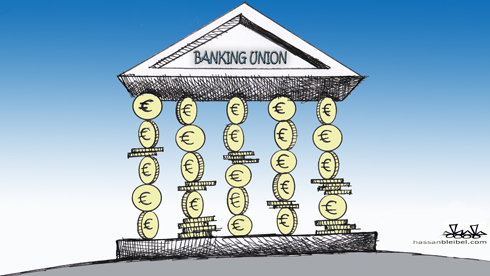The banking union is a test over the future of the Eurozone. If it goes ahead, it is a positive sign; otherwise, it would not be good news. The problem is that while more Europe is surely the solution, things are more complex because national and institutional positions diverge.
The fundamental question is how to tackle banking sector debt that is very high and will be perhaps unknown in the future. Germany is raising a fundamental question: who is responsible for a bank's balance sheet when it goes bankrupt (like Bankia) and, at the same time, who must guarantee deposits in an institution in trouble? These are real problems, and we must first resolve them at the national level, it says. The ECB insists that the banking union must go ahead. Given that the resolution of the real problems will not be imaginary, it’s a positive debate. Europe has entered a time of pure realism, not mere empty statements. And that is a challenge.
There is a new wave of scepticism in Europe, highlighting that the possibility of a split between the zone's north and south is becoming more established, but the reality does not allow us to develop this idea. The internal financial meetings are so transparent, that in Germany itself a public debate is ongoing between [Finance Minister Wolfgang] Schäuble and German advisor Jörg Asmussen, responsible for the international relations of the ECB.
Schäuble’s two-step solution
For Schäuble, there is too much toxic credit hidden away in European banks and invested in companies and public institutions. A banking union cobbled together too hastily would overload the financial fund, which is meant to ensure a general equilibrium, with bad debts. For that reason Schäuble is calling for two phases. First, he wants a clean-up at the national level, where the entire burden of expected reforms and adjustments will fall. Then, once this period is completed, the road will be open to future coverage of risks in the Eurozone. The debt, that is, will not magically disappear by fobbing it off onto others, ie onto the taxpayers of the Eurozone countries. Each country, rather, must assume its own debt. This is the concept of responsibility.
The ECB, as stated by Asmussen, showed its confidence in being able to combine banking supervision, which it will be entrusted with, with the detection of risks in the system that it will be monitoring and, thanks to that, start to tackle them. The question of the responsibilities for coping with the demands of those hit by a bank liquidation remains open, as does the question regarding the management of a support fund for the banks that need it. But all that must and can go ahead at the same time. That’s what being in a union implies.
Blow for Spain
Despite the dust and confusion that this throws up, the Eurogroup has indicated that the German objections are reasonable, and at the same time it encourages bank integration to continue. It has probably grasped that the new normality is not the result of complacency, but the outcome of a re-evaluation of the needs that globalisation demands.
For Spain, in the short term, this circumstance can be negative, since the prospect of a simple banking union, holding out as it did the possibility of a banking stability fund to absorb part of the dubious balance of the country’s banks, was in the country’s interests.
Possibly it will not work out quite like that. The country should be encouraged to keep on with the reforms the Spanish economy needs. And these are not German demands, but something that our own economy requires to rebalance, to grow, and to create real employment. The European debates are not in vain.
Was this article useful? If so we are delighted!
It is freely available because we believe that the right to free and independent information is essential for democracy. But this right is not guaranteed forever, and independence comes at a cost. We need your support in order to continue publishing independent, multilingual news for all Europeans.
Discover our subscription offers and their exclusive benefits and become a member of our community now!












